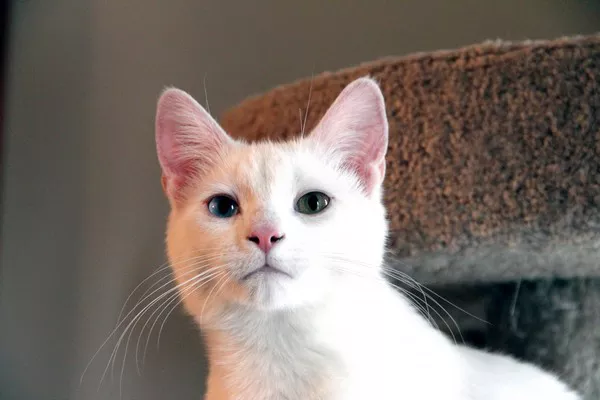Cats, beloved companions to millions around the world, are known for their quirky behaviors. One behavior that often perplexes and amuses cat owners is the tendency of cats to knock things over. Whether it’s a glass on the kitchen counter or a decorative item on a shelf, the sound of crashing objects can be both frustrating and puzzling. In this comprehensive exploration, we delve into the reasons behind this behavior, offering insights into the feline psyche and practical strategies to prevent your furry friend from turning your home into a miniature domino display.
The Curious Nature of Cats
Instincts Rooted in Hunting
Cats are natural hunters, and their ancestors survived by stalking and pouncing on prey. The act of knocking things over may mimic the motions of capturing and batting at small animals. This instinctual behavior is deeply ingrained in their DNA, making it a challenging trait to eliminate entirely.
Playful Behavior and Stimulation
Cats are intelligent and playful creatures. Knocking objects around can serve as a form of entertainment and mental stimulation for them. It allows them to engage in solo play, keeping their minds active and agile.
Communicating Desires
Cats are excellent communicators, and knocking things over can be a way for them to convey their needs or desires. Whether it’s seeking attention, expressing hunger, or indicating a desire for playtime, cats often resort to this attention-grabbing behavior to convey their messages.
Territory Marking
Cats are territorial animals, and knocking things over can be a way for them to mark their territory. By rearranging objects, they leave behind scents from scent glands in their paws, claiming ownership of the space.
Strategies to Understand and Prevent
1. Provide Adequate Play and Mental Stimulation:
Engaging your cat in regular play sessions with toys that mimic prey can help satisfy their hunting instincts. Puzzle feeders and interactive toys can also provide mental stimulation, reducing the likelihood of boredom-induced mischief.
2. Create Safe Perching Spaces:
Cats love to observe their surroundings from elevated positions. Providing cat-friendly shelves, window perches, or designated high spots can divert their attention from knocking over objects. This allows them to indulge their love for heights in a controlled environment.
3. Secure Fragile Items:
Fragile or valuable items should be secured in place or temporarily removed from areas accessible to your cat. This minimizes the risk of accidental breakage and frustration on both ends.
4. Use Cat-Resistant Furniture:
Opt for furniture and decor that can withstand feline exploration. Sturdy, weighted bases for items like vases and decorations can make them less appealing to knock over.
5. Positive Reinforcement:
Reinforce positive behavior with treats and affection when your cat engages in appropriate activities. This helps them associate positive outcomes with desirable behaviors, encouraging them to focus on approved forms of play.
6. Implement Environmental Enrichment:
Keep your cat mentally stimulated by incorporating scratching posts, interactive toys, and rotating their toy selection regularly. A variety of toys and activities can prevent boredom, reducing the likelihood of destructive behaviors.
7. Consult with a Veterinarian:
If knocking things over becomes excessive or is accompanied by other behavioral changes, consult with a veterinarian. Underlying health issues, stress, or anxiety may contribute to disruptive behaviors, and a professional assessment can offer valuable insights.
8. Consider Feline Puzzles and Feeders:
Encourage mental engagement by introducing puzzles and feeders that dispense treats. This not only provides a challenge for your cat but also encourages problem-solving behavior.
9. Establish Routine and Predictability:
Cats thrive on routine and predictability. Establishing a consistent daily schedule for feeding, play, and rest can create a sense of security, reducing the likelihood of stress-induced behaviors.
10. Provide Adequate Scratching Outlets:
Cats have a natural urge to scratch, and providing appropriate outlets for this behavior can prevent them from redirecting their energy toward knocking things over. Invest in scratching posts or pads and place them strategically around the home.
See Also: 7 Ways to Stop Your Cat from Jumping on the Counter
Conclusion
Understanding why cats knock things over is the first step toward fostering a harmonious living environment with your feline friend. While it may be challenging to entirely eliminate this instinctual behavior, implementing a combination of preventive strategies and environmental enrichment can significantly reduce the frequency of object-toppling antics. Each cat is unique, and a tailored approach that addresses their individual needs and instincts is key to creating a happy and healthy home for both you and your beloved pet. By embracing their playful nature and providing appropriate outlets, you can turn the challenge of object knocking into an opportunity for positive interaction and mutual enjoyment.

























